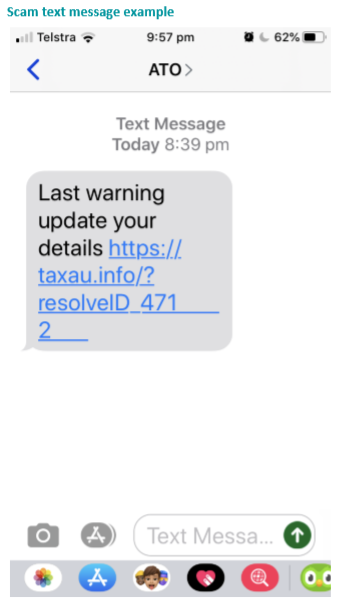It’s tax season again and property investors could be exposed to scammers posing as representatives of the Australian Taxation Office (ATO).
ATO Assistant Commissioner Karen Foat said scammers are becoming “savvy” with their attempts to take advantage of people filing their taxes during this time of the year.
In fact, around $2m was lost to scammers pretending to be ATO representatives between November 2018 and January this year. This is so far the largest-ever amount of money amassed by scammers from unsuspecting victims.
Foat said scammers are now using various channels such as emails, SMS, and messaging applications to trick people.
"They are getting better at impersonating large organisations and ramp up in periods where people expect to hear from us, to make their threats appear more legitimate," she said.
Also read: Property flipper jailed for tax evasion
Some taxpayers might also fall victim to another tactic, which involves the use of cardless cash features offered by banks.
"Through this feature, victims are sent codes to withdraw cash from an ATM, which they then read out to the scammer," Foat said.
The ATO also observed an increase in the incidence of scammers asking people to update their personal details by sending suspicious links.
"These scams usually contain links to fake online services to get personal information that enables scammers to steal your identity," Foat said.
To ensure safety, Foat said Australians must know how to observe the behaviour of suspected scammers. She said when receiving calls from a supposed tax representative, the ATO's number should not project onto the caller IDs.
"So people can be sure that if there's a number on their caller ID, it's not the ATO calling," she said.
Foat also encouraged immediate action to report suspicious messages from people posing as the ATO, especially if they:
- use aggressive or rude behaviour, or threaten you with immediate arrest, jail or deportation
- request payment of a debt via cardless cash, iTunes or Google Play cards, pre-paid Visa cards, cryptocurrency, or direct credit to a personal bank account
- send an email or SMS requesting you click on a hyperlink to log on to government services
Suspicious messages should be reported to the tax office through its dedicated scam line 1800 008 540 or through the ATO’s dedicated web portal.
The photo below is an example of a scam text:

